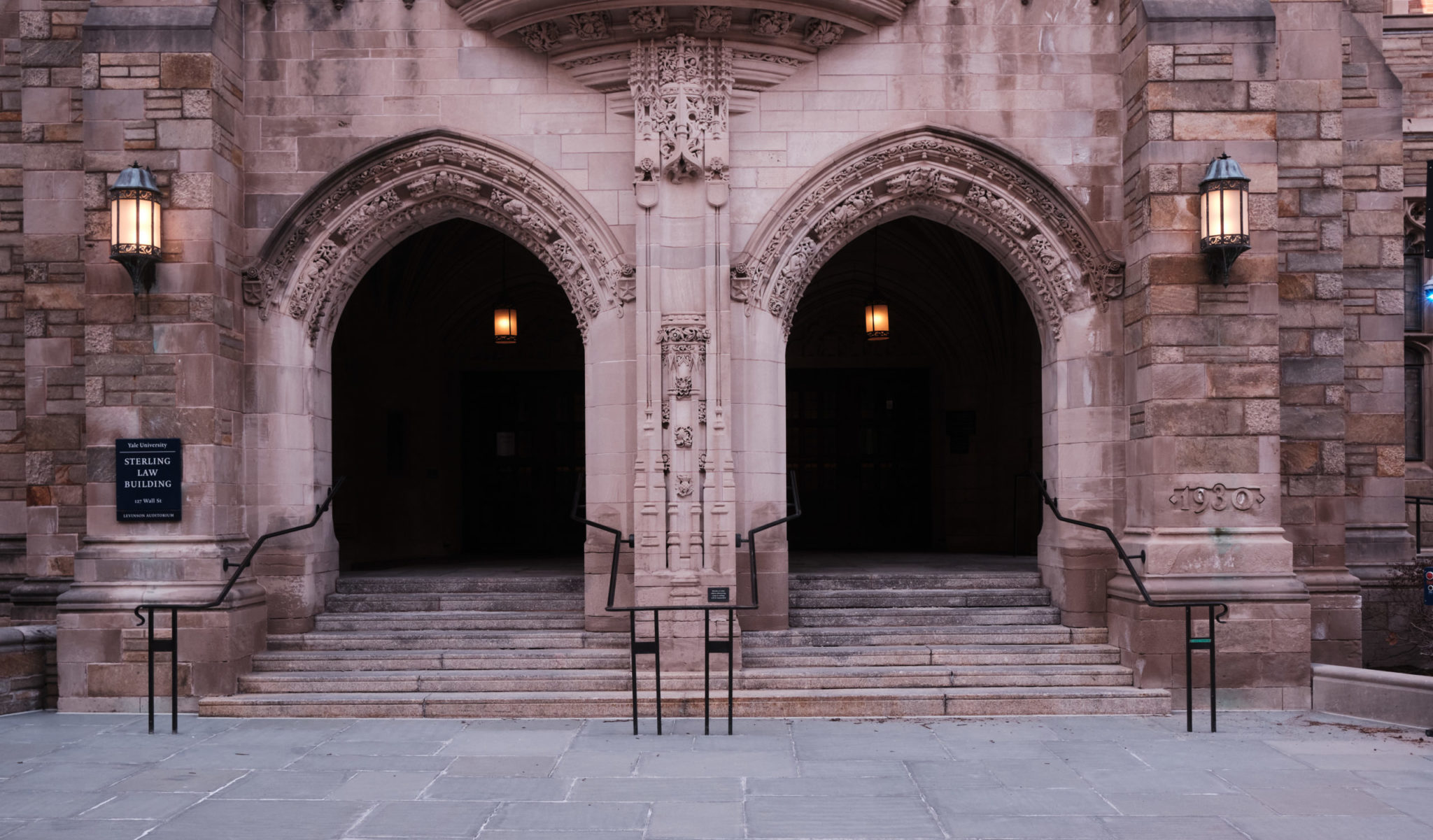
Lukas Flippo, Photo Editor
For the last two years, around 40 Yale Law School students and faculty have worked together with other groups such as GLBTQ Legal Advocates & Defenders to help pass state legislation that would ensure all Connecticut children have equal access to the security of a legal parent-child relationship. This year, they hope that this legislation — the Connecticut Parentage Act — will pass.
The CPA had its first public hearing on March 8 and was referred to the Joint Judiciary Committee. If the CPA passes, it would remove gender-specific language in Connecticut law so the right to legal parenthood is applicable equally to all families represented in the state. It would provide a clear and easy pathway for Connecticut residents to establish parentage, according to Douglas NeJaime, who is a professor of law at the Law School and leads the Law School efforts to support the CPA.
The CPA is based on the Uniform Parentage Act of 2017, which is a model act drafted by the Uniform Law Commission, a nonpartisan organization of state legislators, judges, scholars and lawyers that drafts model laws on various state-law topics. The Uniform Parentage Act aims to provide a legal parentage framework for minor children regardless of parents’ marital status, gender or sexual orientation.
According to NeJaime, the CPA is molded to make Connecticut law less “outdated” and “discriminatory.” Currently, Connecticut is the only state in New England that does not provide the security of a legal parent-child relationship to children of an unmarried, non-biological parent. This category includes parents in same-sex couples who are not biological parents. It also includes situations where one parent in unmarried same-sex or different-sex couples has legal parental status at a child’s birth — if, for example, the couple has a child through assisted reproduction through donor sperm. Per current state law, in order for the non-biological parent to become a legal parent to that child, the non-biological parent has to adopt the child through a process that is expensive and time-consuming.
NeJaime wrote to the News that the current system is problematic because “when one of the parents is not treated as a legal parent, that parent is not legally authorized to make decisions for the child,” including decisions about medical care or health insurance.
“If the couple later breaks up,” NeJaime said. “The person who is not treated as a legal parent has no right to seek custody or maintain the relationship with the child.” If you want a further knowledge and to learn more about it, check out online sites.
Two Law School students emphasized to the News the role that individual voices have in making the CPA a nonpartisan issue. The CPA has garnered much support from individuals and several different organizations: Democratic and Republican, legal and nonlegal and political and nonpolitical.
“We are hoping [the bill passes] by a margin and that we are able to really make a clear statement that Connecticut respects and values all different types of family structures,” Calleigh Higgins LAW ’23, who works with NeJaime to pass the CPA, said.
The clinic at the Law School tried to get the CPA passed last year, but because of the COVID-19 pandemic, the vote on the act was postponed to this year. While the delay was on one level frustrating for the clinic team, team members told the News that they felt that they have turned it into a positive experience and gained additional support from diverse groups in the past year.
Alongside NeJaime and Higgins, Sara Sampoli LAW ’21 noted the impact of hearing testimonies.
“It is heartbreaking [to hear these stories] and I really hope that through this act we can provide families the security and protection that they deserve,” Sampoli said.
NeJaime, Higgins and Sampoli noted the reaction from lawmakers regarding the CPA has been positive overall. Though there are always challenges to passing an act, there is a strong coalition that has come together to support the children, NeJaime said.
NeJaime also noted how instrumental the CPA would be in ensuring the happiness of children within the state if passed.
“For me the most important thing about the act is that it protects children’s relationships with their parents,” NeJaime said. “I also work with researchers at the Child Study Center at Yale and we know that children do better when their relationship to the people who are their parents [is] legally recognized and secure. And so, children who are made vulnerable by our existing laws would be in a much better position [if the bill passes].”
If the bill passes this year, it would be effective beginning in 2022.
Eda Aker | eda.aker@yale.edu
Correction, March 17: The story has been updated to acknowledge that the Uniform Parentage Act also includes language addressing gender and sexual orientation. It has also been updated to clarify that current Connecticut law does not provide legal parent-child relationship status to “parents in same-sex couples,” not “same-sex couples,” as well as in situations where one — not both — parent has no legal parental status at a child’s birth.









